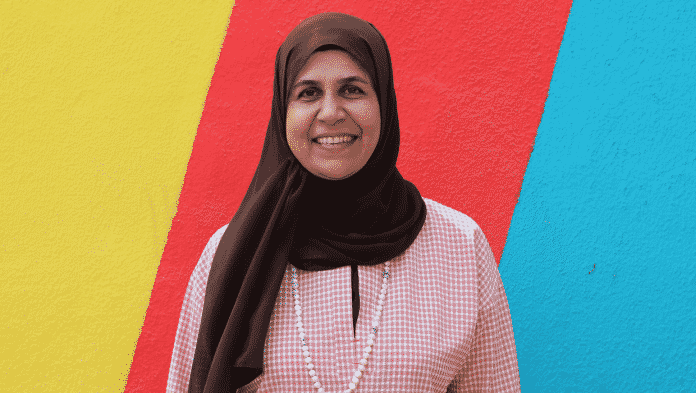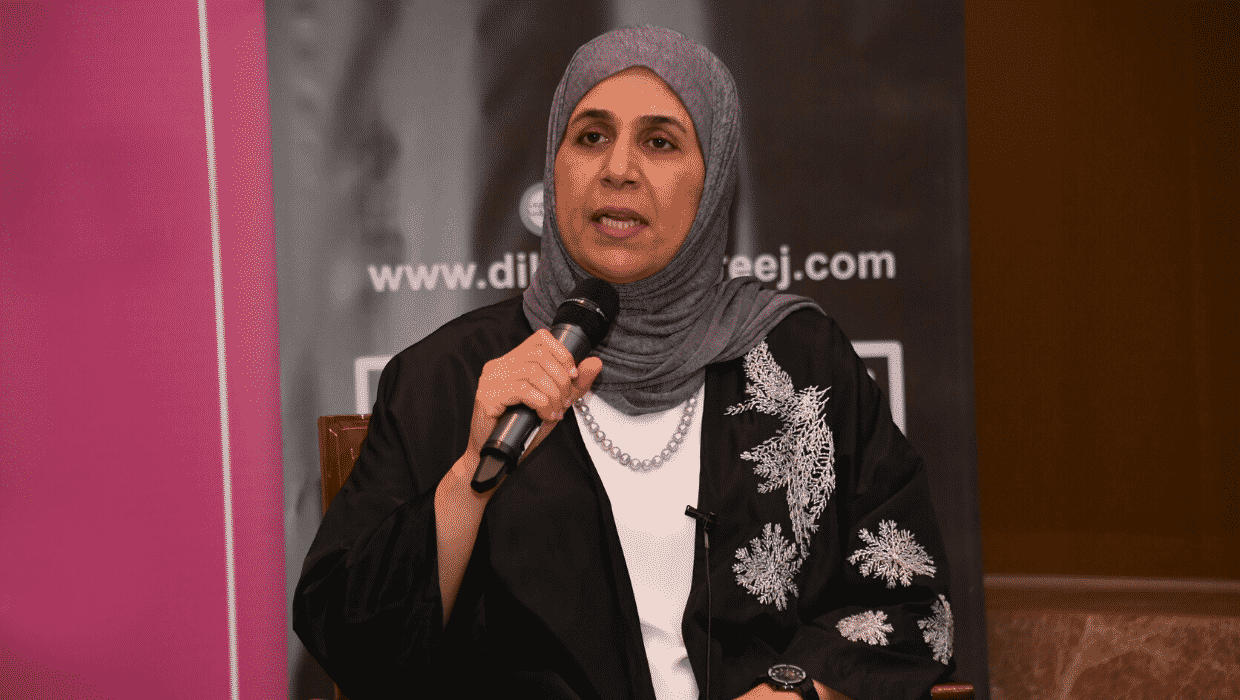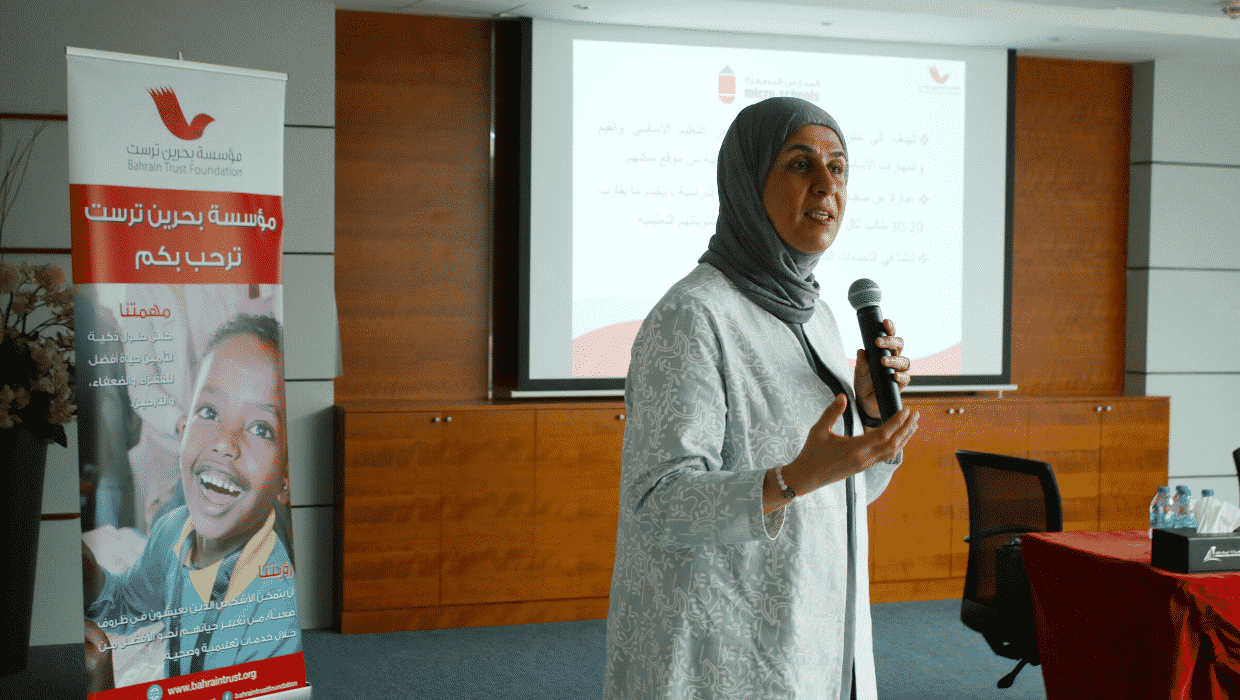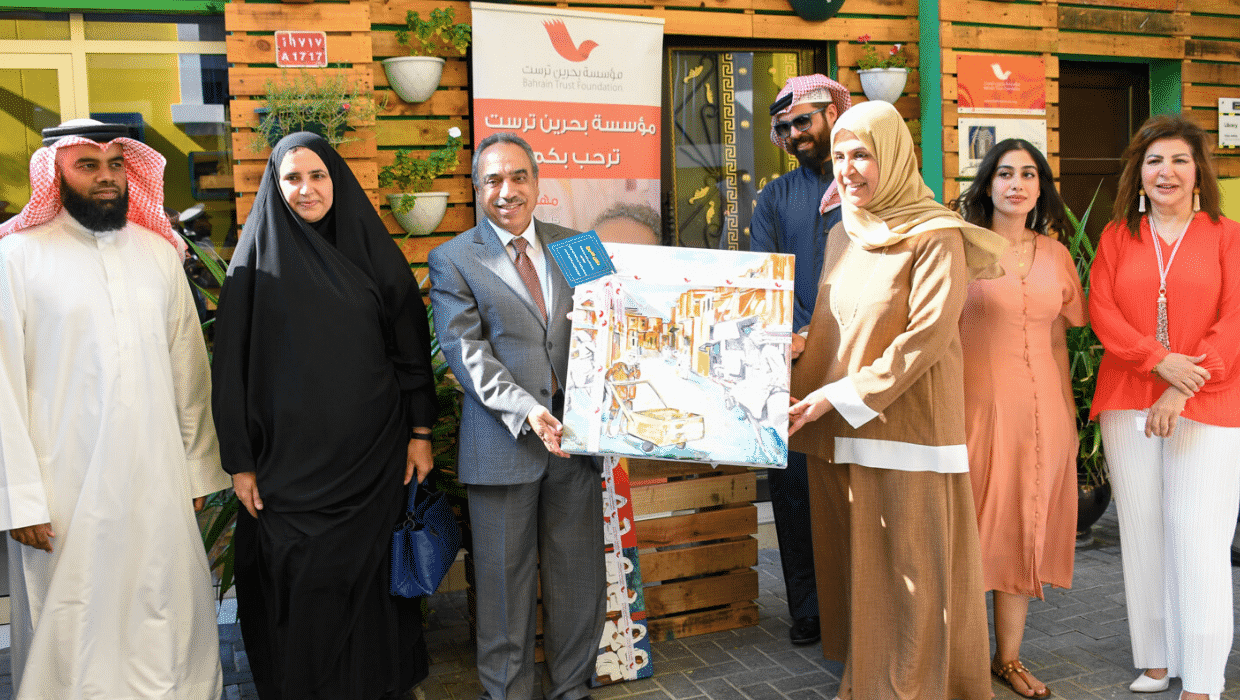A passionate humanitarian, Dr. Fatima Albalooshi was named as the fourth most influential woman in government in the Middle East by Forbes in 2014. She is the recipient of Bahrain Medal (First Degree) by HM the King of Bahrain in 2011. Dr. Fatima Albalooshi is the CEO of Bahrain Trust, White Palm and under her leadership, the first-ever Learning Alley project in the Kingdom of Bahrain was inaugurated. Bahrain This Week proudly presents an inspiring interview with Dr. Fatima Albalooshi, who details her exemplary roles and how she could achieve them with a relentless dedication to the social work and charity.
You served as the Minister of Social Development for ten years as the longest-serving female minister in the Bahraini Government. How was your entry into the Ministry and what were the transformations that you have witnessed over the decade?
It was a learning curve, and our time, witnessed a great transformation. We got great support as women in the government to introduce new ideas to the government and the legislations. That was the time when Bahrain constitution was created.
I was able to pass seven laws, and some of them are very important like child protection law, rights of the elderly, the rights of the disabled people, social welfare, and assistance for the homeless. It was not easy because I had to bring all the stakeholders for them to bring their opinion about it. It took me seven years to pass some laws. I also worked on a law for the NGOs but, unfortunately, I wasn’t able to pass it.
I brought in international organizations to give us new ideas. We joined international treaties, especially the treaty for disabled rights.
I was able to introduce a logo and a new identity brand for the ministry itself as I wanted it to be closer to the people.
We worked on community centers and took a budget to transform the way they appeared. I wanted it to be something closer to the people who come as another home because, it’s all about helping people, and supporting people.
I established new centers such as child protection centers, a shelter for abused women. We had centers for children and youth club, which is an after school club where children go and do activities.
I also started a center of excellence for the disabled. We created a whole compound with 13 centers/buildings for all kinds of disabilities.
I am a technical person, and our Ministry was the first to have a really good technological infrastructure where the whole ministry is connected and with other ministries as well.
With the support of my government, and because everyone was ready for the change, I was able to transform a lot within those 10 years.
You’re a passionate humanitarian and an active advocate for women’s rights and community empowerment. Did you witness a specific incident that initiated your actions?
I’ve always been outspoken since I was a young girl, and think that allowed me to be vocal in defending some of my friends who got bullied at school. I am a defender, and I love that part of my personality.
Whenever I had spare time, I was working or volunteering in Bahrain or abroad.
There was no specific incident. I always question myself in my free time. If you leave, what’s the legacy that you leave behind? Those thoughts inspired me.
When I left the ministry, I realized it was my chance to volunteer, do social work, and charity work. I found that once you are sincere and work honestly, there are always people to support you.
You introduced numerous projects to improve the lives of people and elevate the quality of government services. What were the most satisfying projects for you?
What satisfies me the most is that I made a change. We developed so many programs and infrastructure to support the elderly, children, disabled, and vulnerable people with the NGOs. The most important and satisfying factor is people’s love and appreciation. Whenever I go out now, people recognize me for the projects I’ve done.
I’m happy with all that I’ve done because I’ve done them from my heart.
You were the first Minister to hold three ministries at the same time: Ministry of Social Development, Ministry of Health, and Ministry of Human Rights. Where did you derive the strength and motivation to manage these high demanding roles?
It’s not just me, it’s also the people, who worked with me. I always put trust in the people who work for me, and delegate work to them. I always have respect for them, and they understand that. Ours was a relationship of respect and trust. I always respected their ideas and thoughts and told them that we would learn from each other. That’s how I ran three ministries.
Inevitably, my family- my husband, my children, my mother- is my core support system.
You were an academician and established several academic programs and projects during your tenure. What’s your opinion on the Academic standard of Bahrain at present?
We have seen lots of changes in Bahrain’s education sector. There are lots of universities and training institutes now. The annual report is published by the government, ranking the best universities, training institutes, and schools in Bahrain. This is good and we are working in the right direction.
Something I would suggest we work on is the gap between the academia and the workplace. We need to concentrate on building skills rather than just filling students with information. Information is incredibly easy to acquire nowadays. We need to teach them how to research, develop, plan, learn, critique, find problems, and most importantly to solve problems.
You founded ‘Family Bank’, the first Islamic Microfinance Bank in the world. Can you detail its role in the economic development of Bahrain?
Bahrain is very much interested in supporting SMEs and startups. We supported the home-based businesses that needed an ecosystem and infrastructure. We created a place to fund these microbusinesses, and that’s how Family Bank started.
CBB created its own microfinance bank, and soon other banks also followed. I had to give them a legal framework. The cabinet and issued a decree on how to establish a business at home, and we also established market outlets, training, and centers that support these businesses.
We also conducted awards for these small businesses and gave them to the best products and best organizations. After a while, HRH Princess Sabika bint Ibrahim Al Khalifa accepted and liked the idea of the awards and since then she would finance the awards every year. The Awards were carried even to other Arab regions.
Now, you are in new roles as the Chief Executive Officer of White Palm and Chairman of Bahrain Trust Foundation. What will be your contributions to the Kingdom in these roles?
Bahrain Trust is a new, trendy, and innovative charity organization. Here we create our own ideas that highlight our vision, which is, “We create a smart solution.” By smart solutions, we think of small but very creative, practical and effective solutions for charity funding.
We have a lot of programs in education that started with the micro-schools for those who cannot be in the usual classroom and having partnerships around the world. We’ve had micro-schools in Egypt, India, Mali and looking forward to build one in Nigeria, Jordan and Bahrain. We are also working with Jordan for its refugees and remote villages.
We opened the first micro-school for the children who are stuck in the hospital in Bahrain. It is a way for them to learn, interact, and have something to do while they are recovering.
Through the foundation, we are finding a lot of these opportunities. Be it projects outside Bahrain or inside, we try to get those opportunities. Our main aim is to do something that adds value to the community and for the people.
What’s your message for the next generation?
There will always be differences from one generation to the next generation. For me, when I started working with younger people, I always told them, “You have new vocabularies, new terms, and new ways of doing things.”
It is important to always update yourself. Always learn from others. Learn to work hard and sacrifice because nothing comes easy. Always create something of your own. If you want to copy something, develop it and make it better.
Life is not just you and technology. Just because our phones are giving us a new way to socialize, shouldn’t mean we should stop experiencing life. Life is about other humans. It’s about feelings. It’s about how to be with other people, how to talk and communicate.
Try to also volunteer. Always give back to the community. If you consider how long a day is, an hour or less is very little for something that can be of great help.




